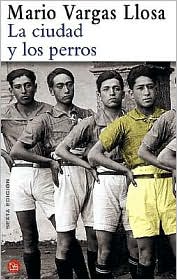by Alisha
Our second Christmas in Peru has come and gone. We celebrated with our host family with a dinner, presents, panetón (traditional Christmas bread), and hot chocolate.
This blog reflects the personal opinions of its writers and in no way represents the official views or policies of the United States Peace Corps.
By Alisha
While Micah is spending time with his family in the States, I’m in the midst of end of the school year festivities. School is ending this week and students will have summer vacation during the months of January and February. That means graduation ceremonies and other end of the year celebrations are keeping me busy. I was even invited to be the godmother of one of the students in our youth group for his high school graduation.
Yesterday I attended an event in one of the communities outside of Chota where we have a youth group. The communication teachers put together a really interesting event. The teachers and students honored an elderly community member by putting together a poetry recital using the poems written by the community member. It was a really great idea to use poetry composed by a community member in order to inspire the students to write poetry and express themselves though art. It was also really touching to see the joy it brought to the author to see his poetry preformed at the local school. The poems were simple and about daily life and struggles. Topics included the corn harvest, discrimination, corruption, and tuberculosis. If I can get my hands on some of the poems I'll try and post them.
by Alisha
World AIDS Day (December 1st) has arrived in Chota. This year Micah and I wanted to do several activities to bring HIV and AIDS awareness to our community. Where we live there are presumed to be a low number of HIV/AIDS cases; however, reliable data isn’t kept for our region. While HIV/AIDS are thought to be of a greater program in coastal areas and in jungle regions we felt strongly about bringing more attention to these diseases. Especially necessary is more information and education in the areas of prevention and understanding that this is a disease that can effect anyone not just certain populations.
Activities started off with a parade of health workers and our youth health promoters. We handed out information on HIV/AIDS.
On World AIDS Day we ran an art contest at one of the high schools and asked students to paint pictures depicting the prevention of HIV/AIDS or something representing that people living with HIV/AIDS should not be discriminated against.
We had some really great submissions from which we choose winners and finalists who will receive sets of art supplies. All of the artwork will also be displayed in the local cultural center through the month of December.
Today our group of youth health promoters presented a play to around 200 students from their school. It was great to see how each of them improved as we prepared for the shows today. All of them took pride in the endeavor and tomorrow they plan to present the play at the local jail.


 War by Candlelight
War by Candlelight Lost City Radio
Lost City Radio La ciudad y los perros
La ciudad y los perros Un mundo para Julius
Un mundo para Julius Un lugar llamado Oreja de Perro
Un lugar llamado Oreja de Perro